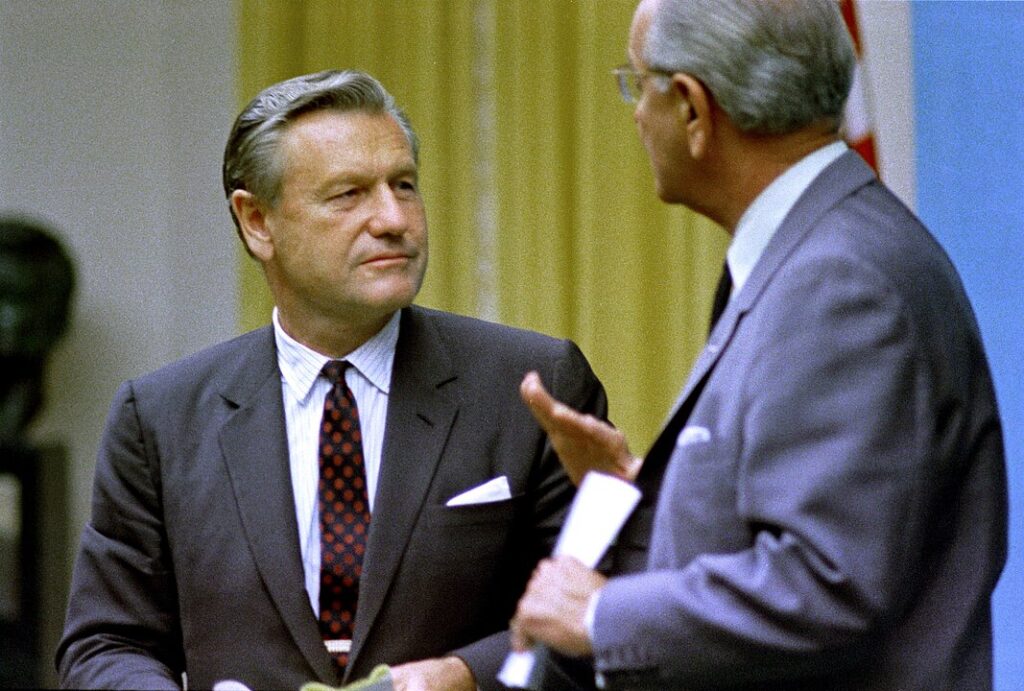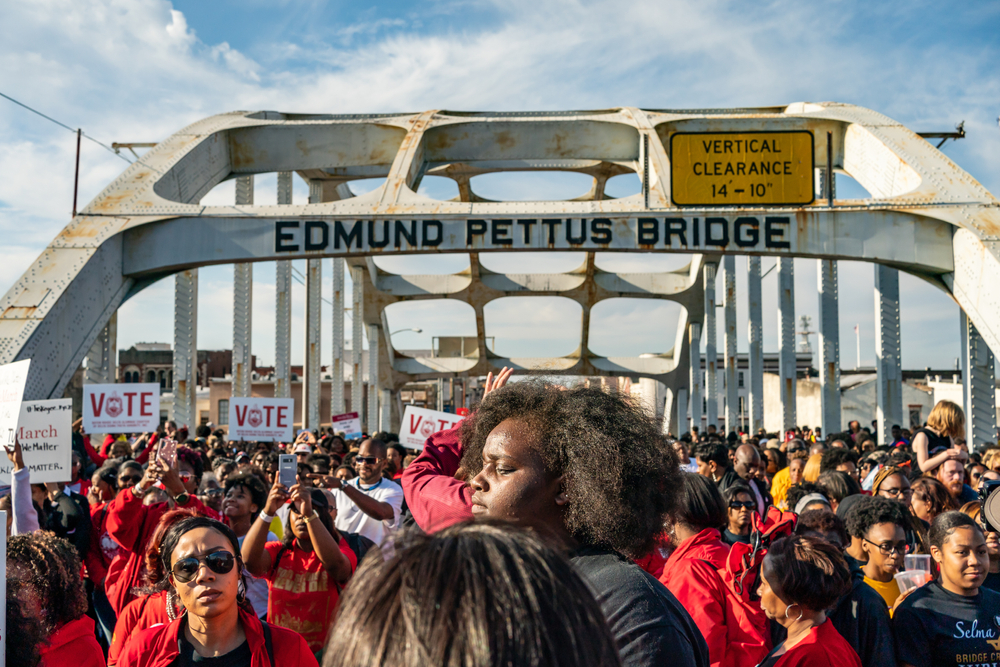His political ideas would be unrecognizable in today’s gop.

The term “Rockefeller Republican” is often used to describe a bygone era of political moderation, but the reality of Nelson Rockefeller’s policies is far more surprising. As a four-term governor of New York and Vice President under Gerald Ford, he championed ideas that would place him squarely on the progressive end of today’s political spectrum. It’s a striking measure of how much the country’s political goalposts have shifted.
Exploring his actual record reveals a brand of Republicanism that embraced government action, social progress, and environmental protection. These ten positions highlight a political vision that would almost certainly be labeled as “radical left” by many in his own party today.
1. He was a champion of environmental protection.

Long before climate change became a household topic, Nelson Rockefeller was a fervent environmentalist. As governor, he signed landmark legislation creating the New York State Department of Environmental Conservation, a powerful agency tasked with protecting the state’s natural resources. He also spearheaded a $1 billion bond act, an enormous sum at the time, dedicated to cleaning up polluted waterways and building wastewater treatment plants across the state.
This belief in aggressive, government-led environmental regulation stands in stark contrast to the modern conservative emphasis on deregulation. Today, a Republican politician advocating for a new, powerful environmental agency and massive public spending to combat pollution would face immense opposition from within their own party, where such ideas are often framed as anti-business and radical, according to Dialogue Journal.
2. He signed a liberal, pro-choice abortion law before Roe v. Wade.

Perhaps the most dramatic difference between Rockefeller and today’s GOP is his firm stance on reproductive rights. In 1970, three years before the Supreme Court’s Roe v. Wade decision, he signed a bill that legalized abortion in New York, making it one of the most liberal laws in the nation. He believed the decision was a matter of individual conscience and personal freedom, a position he defended against vocal opposition.
This pro-choice stance is simply unimaginable for a prominent Republican today, as the party has made opposition to abortion a central tenet of its platform, as mentioned at Oxford Academic. A Republican governor signing a similar law now would be effectively ending their political career within the party. Rockefeller’s position illustrates the profound transformation of the GOP on social issues over the last 50 years.
3. He believed in big government spending on public works.

Rockefeller was a builder in the mold of Franklin D. Roosevelt. He believed in using the power and money of the state to undertake massive infrastructure and public works projects. His most famous, and controversial, project was the Empire State Plaza in Albany, a gigantic complex of state government buildings that reshaped the city’s downtown, as reported in Politico. He also dramatically expanded the state’s highway system and public housing.
This philosophy of large-scale, state-funded development is often criticized today as wasteful “big government” spending. While both parties support infrastructure in principle, Rockefeller’s brand of top-down, monument-style government projects, funded by significant tax increases and state debt, would be met with fierce resistance from fiscal conservatives in the modern era.
4. He massively expanded the state’s public university system.

A central part of Rockefeller’s vision was making higher education accessible to the masses. He oversaw the historic expansion of the State University of New York (SUNY) system, transforming it from a collection of small teachers’ colleges into a sprawling network of affordable universities and community colleges. His goal was to ensure there was a SUNY campus within driving distance of every New Yorker.
This commitment to building and funding a low-cost public university system aligns closely with modern progressive proposals for subsidized or tuition-free college. Today, many conservatives are critical of the cost and perceived liberal bias of higher education, often advocating for budget cuts rather than the kind of massive expansion Rockefeller championed.
5. He was a strong supporter of organized labor.

While he had his share of disputes with unions, Rockefeller’s overall record was pro-labor. As governor, he expanded workers’ compensation, increased disability benefits, and raised the state’s minimum wage. He operated under the belief that strong unions and well-compensated workers were essential for a thriving economy, a view shared by many moderate Republicans of his era.
In today’s political climate, the Republican party is often allied with business interests that are openly hostile to organized labor. Pro-union rhetoric and policies are now almost exclusively found within the Democratic party. A Republican who actively supported expanding union protections and raising the minimum wage would be seen as betraying a core principle of the modern conservative movement.
6. He was an unapologetic advocate for raising taxes.

To fund his ambitious spending programs on infrastructure, education, and the environment, Rockefeller was not afraid to raise taxes, and he did so repeatedly. During his time as governor, he introduced New York’s first statewide sales tax and significantly increased income and business taxes, making the state one of the most heavily taxed in the nation. He believed these taxes were a necessary investment in the state’s future.
Today, an unwavering opposition to tax increases is a non-negotiable plank of the national Republican platform. The idea of a GOP governor proposing major tax hikes to fund a massive expansion of government services is political fantasy. Rockefeller’s belief in taxation as a tool for public investment is now firmly on the “left” side of the aisle.
7. He pushed for and signed strict gun control measures.

Though a hunter himself, Rockefeller supported gun control measures that would be considered radical by today’s GOP. In 1973, he signed the infamous “Rockefeller Drug Laws,” which were best known for their harsh mandatory prison sentences for drug offenders. What is often forgotten is that these same laws also included incredibly strict gun control provisions, including mandatory prison time for illegal possession of a firearm.
This tough-on-crime approach also extended to controlling the availability of weapons, a position that is completely at odds with the modern Republican party’s staunch defense of the Second Amendment. A Republican today who proposed mandatory prison sentences for simple possession of an unlicensed handgun would be ostracized by the party.
8. He championed government funding for the arts.

Rockefeller was a passionate collector and patron of the arts, and he believed the government had a vital role to play in supporting artistic expression. In 1960, he established the New York State Council on the Arts (NYSCA), the first state arts council in the country. This agency provided public funds to museums, theaters, and artists, and its model was used for the creation of the National Endowment for the Arts (NEA).
Government funding for the arts has been a contentious political issue for decades, with many modern conservatives arguing it is a wasteful and inappropriate use of taxpayer money. The NEA is a frequent target for budget cuts. Rockefeller’s belief that the arts were a public good worthy of robust government funding is now a mainstream progressive position.
9. He was a vocal and financial supporter of civil rights.

Rockefeller came from a family with a long history of supporting Black institutions, and he carried that legacy into his political career. He was a strong and public supporter of the Civil Rights movement, appointing more Black officials to high-level state positions than any previous governor. He spoke out forcefully against segregation and used his influence to push for civil rights legislation at the national level.
While the Republican party has a proud history as the party of Lincoln, the passionate, activist stance Rockefeller took is more aligned with the modern Democratic party’s approach to racial justice. His brand of progressive Republicanism on civil rights would make many in today’s more populist and nationalist GOP uncomfortable.
10. He believed in using foreign aid as a diplomatic tool.

As a former Assistant Secretary of State and a lifelong internationalist, Rockefeller was a firm believer in using American wealth and influence abroad. He saw foreign aid not as charity but as a critical tool for fighting communism, building alliances, and promoting American interests. He advocated for robust funding for programs that supported economic development and stability in other countries.
This internationalist viewpoint has fallen out of favor with the more isolationist wing of the Republican party that has gained prominence in recent years. Today, calls to cut foreign aid and focus on “America First” are common on the right, making Rockefeller’s belief in extensive global engagement seem like a relic from a different political world.
